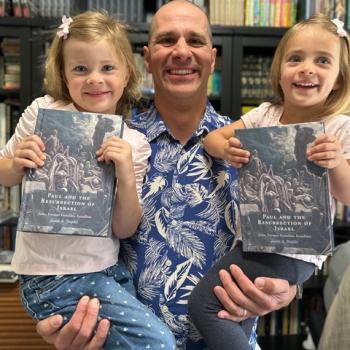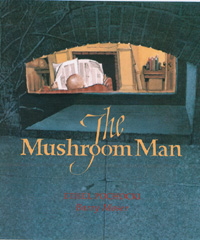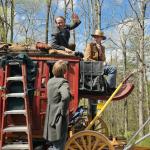Today, the world lost a prolific children’s writer, Maurice Sendak, author of Where the Wild Things Are. For many, the sight of this book and it’s iconic images, first published in 1963, conjures up childhood memories. You may remember the lap, or lack thereof, that you were sitting on when you first experienced Mischievous Max run his mouth to his mom (who calls him “WILD THING!”) by yelling, “I’LL EAT YOU UP!” and is promptly sent to bed without dinner. In his room, still dressed in his wolf costume, Max imagines himself as King of the Jungle. The captivating pictures (the ones some parental critics find too scary) show Max’s room transformed from a forest into an ocean. On it, he braves dragons to reach the island of the wildthings.
And when he came to the place where the wild things are they roared their terrible roars and gnashed their terrible teeth and rolled their terrible eyes and showed their terrible claws” til Max said “Be Still.”
Through the simple sound of his voice, the monsters not only obeyed, but deemed Max their King, to which he decrees, “And now, let the wild rumpus start.” The next few pages hold a picture of every child’s dream, right? Not only does Max hold complete dominion, he’s organized every mom’s nightmare-of-a-play date with unsupervised boys. After Max exerts one last bit of power in ordering the wild things to “Now Stop!” he sends them to bed without their supper. And then the book takes a powerfully redemptive turn,
And Max the king of all the wild things was lonely and wanted to be where someone loved him best of all. Then all around from far away across the world he smelled good things to eat so he gave up being king of where the wild things are.
What Max then discovers is that the yummy smell is coming from the dinner sitting on his bedside table. The home (or better yet, the parent) to which he ultimately returned had graciously left him dinner.
Bottom Line: Many adults and children have expressed sadness after reading this book, perhaps because it is so true to the human experience. People are inclined to chase autonomy, power, and self-reliance only to find themselves lonely and stuck on self-created islands.
For me, it created a different sort of emotion, more along the line of an unfulfilled longing. At the conclusion of the story — the simple image of the loving dinner sitting on the bedside table, evidence of a gracious and loving parent – is not enough. It is an incomplete picture of reconciliation, without the complete abandoning love of the Father lifting his clothes, running to embrace the Prodigal Son. As the stubborn, autonomy loving, fool that I am — I need the story to end differently. I need more than the reminder of love and forgiveness – I want to be with my love.
Rest assured, my fellow pilgrim, the day will come when we experience by sight what we can only access by faith now.
And our longing will be no more.
C.S. Lewis On Scary Images
In his essay “On Three Ways of Writing for Children”, C.S. Lewis makes a helpful contribution to the discussion of exposing our children to things that may frighten them,
Those who say that children must not be frightened may mean two things. They may mean (1) that we must not do anything likely to give the child those haunting, disabling, pathological fears against which ordinary courage is helpless: in fact, phobias. His mind must, if possible, be kept clear of things he can’t bear to think of. Or they may mean (2) that we must try to keep out of his mind the knowledge that he is born into a world of death, violence, wounds, adventure, heroism and cowardice, good and evil. If they mean the first I agree with them: but not if they mean the second. The second would indeed be to give children a false impression and feed them on escapism in the bad sense. There is something ludicrous in the idea of so educating a generation which is born to the…atomic bomb. Since it is so likely that they will meet cruel enemies, let them at least have heard of brave knights and heroic courage. Otherwise you are making their destiny not brighter but darker.















